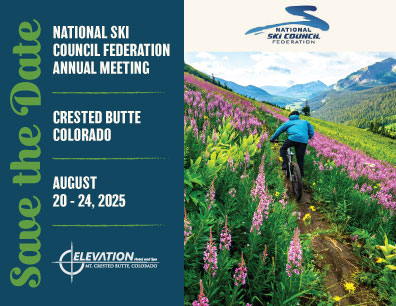12 Life-Saving Travel Hacks for Your Next Trip
Life-Saving Travel Hacks
The following life-saving travel hacks can help you avoid or escape many risks of the road.
Display Vital Health Information on Your Phone
Certain smartphone apps let you display essential health information (such as severe allergies or medical conditions) right on your lock screen so doctors and first responders can see them even without your password or fingerprint. This is particularly useful for solo travelers who don’t have a companion to advocate for them. Such apps include the Health app on your iPhone and the Medical ID app for Android.
Stow Money in Your Shoe
One ageless and deeply analog tactic to get you out of a jam is to keep a $100 bill (or the local equivalent) in your shoe.
While traveling through the Alps in the late ’80s—back when ATMs, train station ticket machines, and weekend access to cash barely existed—I woke up on a Sunday morning at a border crossing and needed to purchase a new ticket for the country’s rail system. I didn’t have enough cash in my wallet to pay for it, they did not take credit cards, I had a flight the next day, and the border agents were not sympathetic. I was in trouble.However, on the day before my trip started some 18 days prior, I had gone to my local bank, asked for a $100 bill, and put it in my shoe outside the bank. Without that bill, I was stuck at a remote border crossing with nowhere to stay, no money, and no friends in sight. With it, I paid to continue traveling and made it to a bank the next day.
While it’s easier to get cash and pay with credit these days, this can still be a life-saving travel hack if your wallet is stolen and you’re left without your credit and debit cards. It’s best if the money is in the local currency, so when you first arrive in country, take a bill from your initial ATM withdrawal and stash it.
Split up Your Valuables
If you’re traveling with a friend, don’t have one person carry all the critical stuff such as passports, credit cards, cash, and hotel keys. If one person loses or is robbed of their wallet or purse, you don’t want to lose all the critical things you’ll need to dig your way out of a jam.
If you’re traveling alone, get the two hotel keys that are usually on offer, and put one in your wallet or purse and the other in your pocket or money belt. Split up cash and credit cards in a similar fashion, with some easily accessible and some hidden in a money belt or your hotel safe. This way, if you are robbed, you can hand over what appears to be everything you have and will hopefully be allowed to go safely on your way without being left without resources.
Save Emergency Numbers in Your Contacts
While 911 is the U.S. emergency number, it won’t work in many other countries. The U.S. State Department has a handy PDF list of emergency numbers by country. Note that many have different numbers for ambulance vs. fire vs. police, so be sure to save all of them in your contacts.
In some situations calling 911 might not be appropriate, so it’s also worth looking up and saving the numbers of local law enforcement and your home country’s nearest embassy. U.S. citizens may also want to sign up for the Smart Traveler Enrollment Program (STEP) so the embassy can contact you in case of an emergency.
Depending on the type of phone you have, you might have an automated way to call the local emergency number. If your iPhone is running iOS 11, you can access Emergency SOS by either pressing and holding the side button plus one of the volume buttons (for iPhone X, iPhone 8, or iPhone 8 Plus) or rapidly pressing the side button five times (iPhone 7 or earlier). This will trigger an Emergency SOS slider that will let you call emergency services no matter where you are. Learn more about this life-saving travel hack here.
Stay Between the Third and Sixth Floors
You probably choose your hotel room for its amenities or views, but you should also keep your safety in mind. “Don’t accept a room on the ground floor if you can avoid it,” writes Sarah Schlichter in Hotel Safety Tips. “Many safety experts recommend staying somewhere between the third and sixth floors—where rooms are high enough to be difficult to break into, but not so high that they’re out of the reach of most fire engine ladders.”
Don’t Let Your Gas Tank Get Low
Keeping an eye on your gas tank will help you avoid running out of gas or having to fuel up in a questionable area. This is particularly important if you’re traveling in harsh environments such as deserts, remote areas, or extremely cold parts of the world, where being stranded without gas could quickly become life-threatening.
Use Caution When Drinking
Being in a foreign country where you don’t speak the language or know the local laws makes you vulnerable; don’t compound this by drinking foolishly or to excess. Watch your drink being poured, don’t let it out of your sight, and don’t have more than one or two, especially if you’re traveling alone.
Be Willing to Spend When You Feel Unsafe
Everyone wants to save a few bucks when they travel, but it’s not worth your life. If you’re unsure of your surroundings or facing a long walk back to your hotel at night, don’t hesitate to spend some extra money on a cab ride to get yourself to safety. The same goes for an Airbnb whose host makes you feel uncomfortable or a motel in an iffy neighborhood. Don’t stick around if your safety is at risk.
Follow Your Taxi or Carshare Route on a Mapping App
Keeping an eye on the route when you get into an unfamiliar car can help you avoid getting lost or ending up in a sketchy area. If you sense trouble, call your emergency numbers and get out of the car if you can, preferably in a populated area where someone can help.
Have Your First Night’s Lodging Set
Over the years, I have pulled into towns with no plan for lodging; sometimes it went well, sometimes not so well. I can tell you that wandering around in an unfamiliar city with all your bags is not that fun—and could make you a target for thieves. Even if it’s expensive, have your first night’s stay nailed down whenever possible.
If this fails and you end up sleeping in car, try to do so under cover. Here’s a decent trick: Drive to the nearest airport’s indoor parking garage, and sleep there. It is usually fairly safe, monitored (but usually not so carefully that they will notice you sleeping in the back seat), a bit warmer than parking outdoors, and cheap; $20 or so for eight hours is a fraction of a hotel room cost.
Manage Your Allergies
If you have any life-threatening allergies, make sure you learn how to say and spell the name of that item in the local language. You’ll also want to advertise your allergy somehow, perhaps by wearing a medical bracelet or carrying a food allergy card such as those from Select Wisely.
Update Friends and Family
It’s never been easier to keep friends and family up to date on your location, and having someone at home know where you are supposed to be can be very useful in an emergency. Send quick texts or emails home noting the city, hotel, or attraction you are visiting so folks know where to find you if something happens.
Several apps can help with this life-saving travel hack. Options include Red Panic Button, which lets you send an emergency email or text to any contact you determine, and Trusted Contacts, which lets loved ones track your location.
Posted from Smarter Travel




